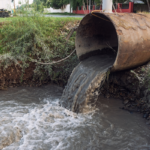Hurricane Preparedness Week is May 9-15, providing the perfect opportunity for people across the country to get ready for the upcoming hurricane season. Knowing what to do before, during, and after a hurricane or typhoon can sometimes mean the difference between life and death. Take steps now to protect your home, yourself, and your family, before it is too late.
Before a Hurricane
Preparation starts long before the news broadcaster pulls out the doppler and warns of an upcoming storm. Assemble an emergency kit — including medication, copies of important documents, water, nonperishable food, flashlight, batteries, emergency blankets, battery powered radios, and any other supplies you might need in the event of a natural disaster — and keep it fully stocked all hurricane season long. Create an emergency plan that everyone in your household knows and understands, and familiarize yourself with local evacuation routes and response plans.
If you know when a hurricane is scheduled to break land, adhere to the following steps if time permits: fill plastic bottles with clean water for drinking; fill the gas tank in your car; fill bathtubs and sinks with water for flushing the toilet or washing items; bring in outdoor items that could be picked up by the wind; move valuables to higher floors of your home; turn off propane tanks and unplug small appliances; and, if told to do so by authorities, turn off utilities. Don’t forget to stay tuned into local TV or radio for the latest updates and information.
Survive During
The most important thing to do during a hurricane is to find refuge and stay informed. If possible, remain indoors and do not go outside. Use flashlights, not candles, in the dark if power goes out. Listen to local radio and pay attention to emergency alerts.
If disaster strikes and you find yourself stuck outside, do not walk, swim, or drive through flood water. Move to higher ground, avoid beaches or river banks, and stay away from areas that can easily become flooded. Be sure too to avoid contact with flood water, as it may be contaminated with sewage.
Be Safe After
Once the storm is over, the recovery process begins. Let loved ones know you are safe and help community members who might require additional assistance. Continue to listen to local news, as it is common for rainfall and flooding to occur even after the hurricane has passed.
It is unlikely that you will be able to return to your home immediately, even if authorities have said it is safe to do so. Return to your property and inspect the structure and systems for damage, and, if you deem it to be habitable and safe, then return. Stay away from dangling power lines and stay out of buildings that have water around the perimeter. Document any property damage with photographs and contact your insurance company for assistance. When cleaning and repairing the home, wear protective clothing and be cautious. Clean and repair what you can but do not hesitate to ask a professional for help.
To help protect against future storms, consider building in hurricane-resistant features. Proactive risk management in conjunction with a strong insurance policy is the optimal hurricane preparedness plan.




